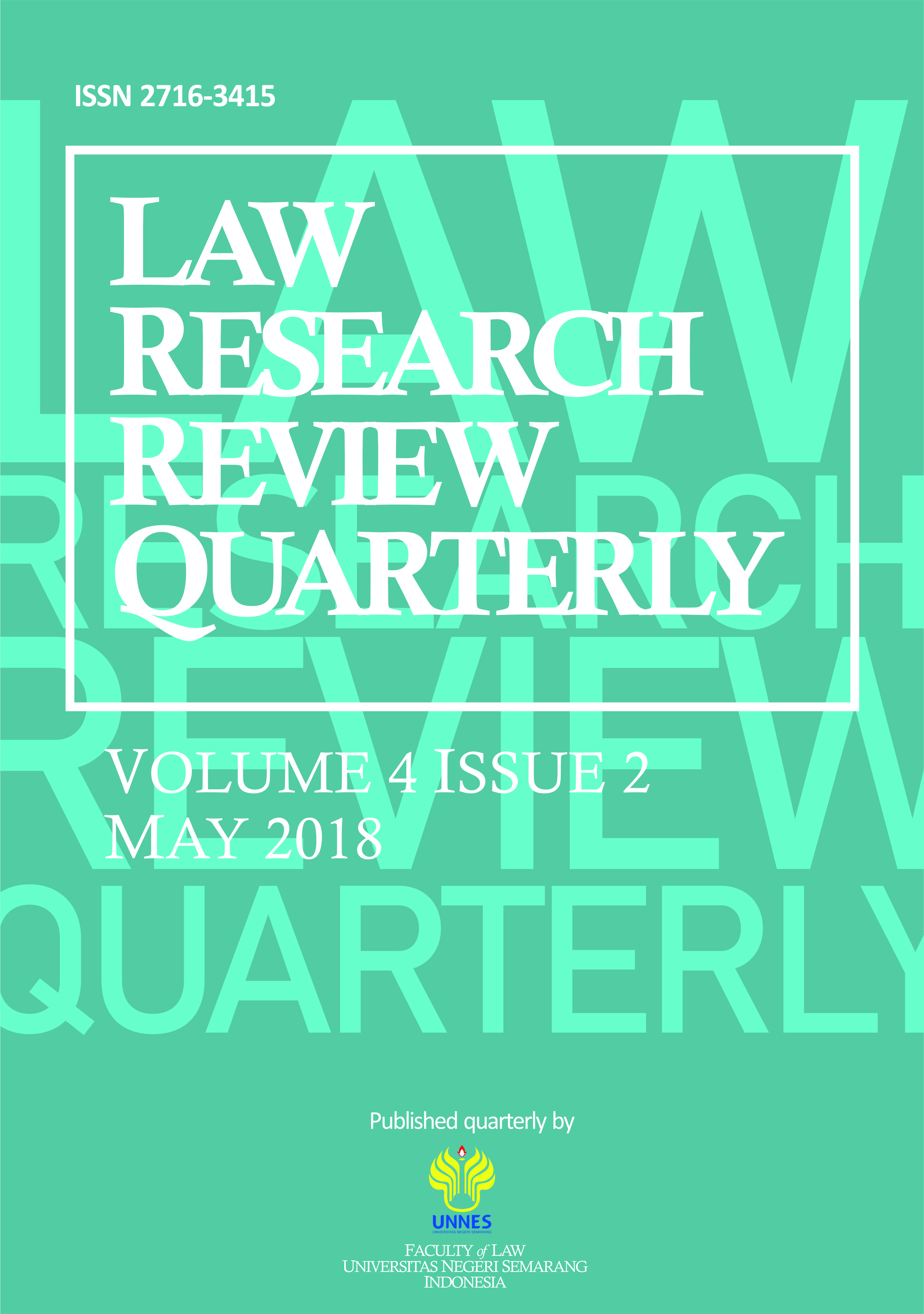The Role of the Integrated Law Enforcement Center (Gakkumdu) in Election Crime Enforcement
Main Article Content
Abstract
The election is a tangible form of the concept of democracy which is believed to be one of the principles of governance in Indonesia. But in the implementation of the democratic party there were still shortcomings in the journey. One of the factors that cause the rise of money politics is the lack of awareness of most Indonesians that elections are the most effective vehicle for upholding people's sovereignty. For example, the presence of fictitious or fake voices often colors the event of a democratic party in this country. People are not aware that the various events that emerged earlier can be categorized as election crimes whose threat of sanctions has been firm. In Act No. 7 of 2017 concerning Election shows the seriousness of the government in combating election crime through the formation of Gakkumdu. Gakkumdu as an integrated law enforcement center has an important role in handling election crimes. In Article 486 item (1) of Law No. 7 of 2017 explicitly explained the formation of Gakkumdu intends to equalize the understanding and pattern of handling election crimes by the Bawaslu, the Indonesian National Police, and the Attorney General's Office of the Republic of Indonesia. The topic of the problem that will be discussed in this article is the role of Gakkumdu in suppressing election crimes in the Presidential elections in the 2019 Election.
Article Details
All writings published in this journal are personal views of the authors and do not represent the views of this journal and the author's affiliated institutions. Author(s) are retain the copyrights of the Article. However, before publishing, it is required to obtain written confirmation from Author(s) in order to ensure the originality (Author Statement of Originality). The statement is to be signed by at least one of the authors who have obtained the assent of the co-author(s) where applicable.This work licensed under a Creative Commons Attribution-ShareAlike 4.0 International (CC BY-SA 4.0)
References
Abdul aziz hakim. (2011). Negara Hukum dan Demokrasi di Indonesia. Pustaka Pelajar: Yogjakarta.
Prihatmoko, Joko. J. 2007. Men-Demokratis-kan Pemilu: Dari Sistem Sampai Elemen Teknis. LP3M UNWAHAS dan Pustaka Pelajar: Semarang.
Titik Triwulan Tutik. (2011). Kontruksi Hukum Tata Negara Indonesia Pasca Amandemen UUD 1945. Kencana: Jakarta.
Artikel Jurnal
Farahdiba Rahma Bachtiar. (2014). “Pemilu Indonesia: Kiblat Negara Demokrasi Dari Berbagai Refresentasiâ€, Jurnal Politik Profetik Volume 3 Nomor 1 Tahun 2014, hlm. 1-18.
Nanik Prasetyoningsih. (2014). “Dampak Pemilihan Umum Serentak Bagi Pembangunan Demokrasi Indonesiaâ€, Jurnal Media Hukum Vol. 21 Nomor 2, hlm. 242-243.
Triono. (2017). “Menakar Efektivitas Pemilu Serentak 2019â€, Jurnal Wacana Politik Vol. 2 No. 2, hlm. 156-164.
Peraturan Perundang-Undangan
Republik Indonesia. Undang-Undang Nomor 7 Tahun 2017 Tentang Pemilihan Umum, Lembaran Negara Republik Indonesia Tahun 2017 Nomor 182.
Sumber Online
[…] http://id.wikipedia.org/wiki/Demokrasi, ditelusuri pada tanggal 26 Agustus 2018.
[…] http://demokrasiindonesia.blogspot.com/2014/08/demokrasi-di-indonesia-pengertian-macam-, ditelusuri pada tanggal 26 Agustus 2018.
[…] https://novithen.wordpress.com/pemilih-apatis-dan-pragmatis/, diakses tanggal 28 Agustus 2018.
[…] https://satutimor.wordpress.com/2014/03/21/harapan-untuk-penanganan-tindak-pidana-pemilu/, diakses tanggal 28 Agustus 2018.
